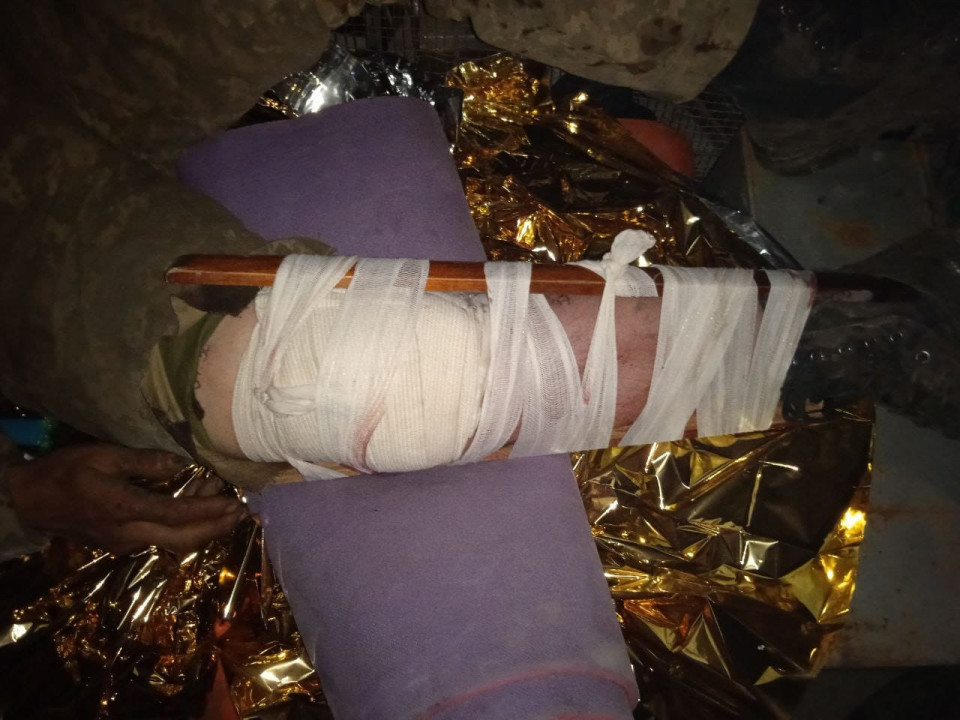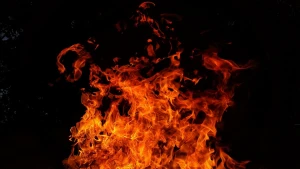
"She has saved over 370 people during her service": Lviv teacher Anna Ivantsyk describes her everyday life at the front
Anna works at a school and helps children with inclusion. She is an active citizen and resident of Lviv, and she is also a military medic
Anna Ivantsyk, a teacher from Lviv, told the Espreso.West journalist about how she got to the front and about her combat achievements.
Ania, who are you by education?
I work as a teacher's assistant at school №67 in Lviv. I worked on inclusion with a 5th-grade student, that is, already in the 6th. In 2007, I graduated from the University named after Mechnikov, Faculty of Philosophy. In 2021, I graduated from the South Ukrainian National Pedagogical University named Ushinsky majoring in elementary education.
And where did you get your medical experience?
Oh, it was back in 2014, when I returned home after the annexation of Crimea (Anna was born in Lviv, but lived in Crimea for some time). I volunteered in the organization !Help the Army!, was a member of a public organization, where I met wonderful people, and then the Beskyd project - a tactical training center - was opened. I was trained there, and then I was offered to deepen my knowledge in tactical medicine. I joined the T-helpers organization and completed emergency aid courses at the ambulance base. There were many different courses, so I can't remember them all.
How did you become an instructor?
I did not become an instructor right away, but since 2016 I have been going to the training ground to train fighters. I was in many regions - training Ukraine's Armed Forces, the National Guard, and others. There was a lot of work, so until 2018 I was almost not at home. I combined both permanent work and the work of an instructor.

How did you get to the front?
It was difficult to get to the front. I came to the Military Commissariat on February 24 by myself, but I was refused because I did not have a military ID and education is not subject to mobilization. Then I came in the afternoon and immediately went to the commissar to hire me as a medic, because I know that it was always difficult to find combat medics in the army. On February 25, I was issued a military card with the position of clerk, and when I got to the 24th Brigade named after King Danylo Halytskyi, I was appointed as a combat medic.
From February 25 to March 10, I was in the unit, but women were not sent to the frontline, but on the contrary, they were taken out. Anyone who has desire and patience succeeds in everything, so I began to wonder how I could get to the front. I found another battalion and company that took women with them. That's how I ended up in the 5th Company's 2nd Battalion and I still serve with my comrades. I call them my cats. It's like a family.
"Over the entire time of my service, more than 370 people have been saved"
On February 24, you demanded from the Military Commissariat that you be mobilized, and this impresses many. What exactly motivated you?
You know, for a long time I asked myself the question: "What if the war starts, where will I be?". And I did not have an answer for a long time. But a couple of days before the war, I was on the air of one of the TV channels, where we mentioned the annexation of Crimea. And I, leaving after recording the program, called my friend Maksym, a Crimean, and said: "You know, it seems to me that soon everything will begin and I will definitely go to war and save people there." And there was no fear, but such a clear position in my head that this is my job and I will be very needed there.
Tell us about your first fight
Oh, the first battle and the first wounded were in March, when we were in Katerynivka. At that time, heavy fighting was already going on in Popasna. We entered in small groups. I was in the evacuation group and supplied combat kits. We were told over the radio that we have a wounded man. They brought him to me because we were in the ravine. He had a through wound to his arm and chest. I closed his pneumothorax with occlusive bandages, put a compression bandage on his arm, and when the invaders started shooting in our ravine... I shouted to him: "Get up and run! Your legs are intact, so no one will carry you!". We had to run across the field to our trenches to evacuate the wounded. We were running, the mines were exploding, and the military Orest was covering us from his position. We caught up, and sent the man for treatment.
Then we sat in position while it was quiet, and then I saw that the boys had a whole cauldron of buckwheat. I asked them when they last ate soup, and they laughed. I thought that I should cook borscht for them, because they were hungry. I had almost cooked it, when the invaders started shooting - everything was buzzing, thundering, so we ran to the basement with this borscht. Military Andrii ran behind us with a frying pan. The mission "to save the borscht" was successful. Then the boys came from a combat mission and ate. And we still remember this borscht.

Was it difficult to find a common language with men?
Differently. It was difficult from the very beginning, but then somehow I got involved. I did everything that boys did and didn't complain. They accepted me as their own. I never asked for a different attitude towards myself. Because it is difficult for everyone both physically and psychologically. The senior officer with the platoon operational point kept asking me to be taken away, because he did not need a woman. But everything changed after Popasna. We became one big family after the hell we went through.
How many soldiers did you manage to save?
I have already saved more than 370 people during the entire time of my service.

How many comrades have you lost and how do you feel about it?
The losses are great and each of them is a great pain. I say goodbye to them on the spot when we send them away. Then, whenever possible (when I was being treated in Lviv), I go to the cemetery. I sit, talk, and it gets easier. But they are all in my memory and close to my heart. Now we are protected from heaven.
When and how did you get injured?
The first injury was in Popasna. On April 24, when we were leaving Popasna, a slab (ceiling of the house) fell on my leg. Then, as I was running for evacuation, the 120th mine fell 100 meters from me - the eardrum cracked, and now I can't hear well in my right ear. There was a contusion.

In Komyshuvakha, I fell ill with pneumonia because I slept in the entrance. It was very cold. And now, this is the most serious wound. I received in the Southern direction, when we were carrying out a counterattack. An accumulative projectile flew into our infantry fighting vehicle. It flew into my neck and arm, but the doctor promised to cure everything.

Note: Two fingers on Anna's left hand are badly crushed. Doctors are still fighting for one finger.
Are you going to return to the front?
Yes, I will. But I'm still there with my cats. We constantly communicate with them. They have medicine, and if something hurts, I tell them what to take. I have Bohdan, a friend there, so he can give them an injection. So I am always with them.
You have a son. How does he perceive that his mother is fighting?
It's hard, because he wants his mother to be around. Every child wants a mother. And it's hard for me to be without him. But I don't want our children to know what war is. That's why I'm there and doing my job.
What does a woman lack at the front?
"Hugs" (laughs).
- News












































